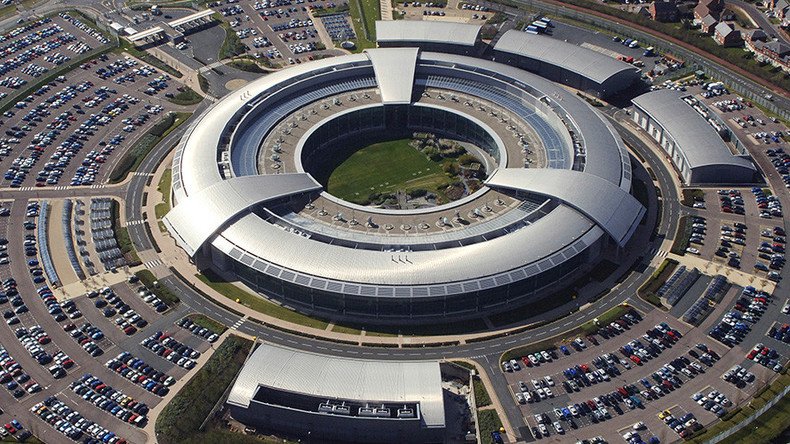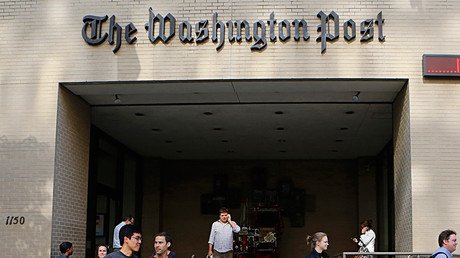'Intelligence-lite: No evidence whatsoever of Russian cyber attacks against UK'

The NSA hacked the private mobile phone of German Chancellor Merkel, but nobody is saying 'we must protect ourselves from America hacking us,' said Annie Machon, former British intelligence officer. It's an ongoing process of demonizing Russia, she added.
The Sunday Times has published an interview with the head of Britain's new cyber security center in which he accuses Russia of state-sponsored targeting the UK.
Ciaran Martin, head of the new National Cyber Security Center (NCSC), said Britain was being hit by 60 cyber-attacks a month, including attempts by Russians to steal defense and foreign-policy secrets.
In particular, he mentioned a "step change" in Russia's online aggression leading to more attacks on so-called soft targets to steal personal data and on universities to steal research secrets.
However, he provided no evidence of the claims, adding only that the UK's international partners were sustaining attacks.
The cyber security chief also warned that Britain would suffer a so-called 'category 1' attack by Russia in the future, backing up the claim with the allegation that this had already happened to the UK's major allies.
He also said Moscow was seeking to assert its power and influence against the West.
RT: What do you make of the fact such serious accusations are again being made without giving any evidence?
Annie Machon: A lot of what our intelligence chiefs have been saying over the last few months have been very 'intelligence-lite' generally. In this case, of course, Russia is going to be trying to spy, as is the NSA, as is the UK GCHQ, as are the Chinese. What is very marked - and I happen to be in the UK at the moment - is that all UK media is purely focusing on "the Russian threat".
We seems to be another step in the demonization of Russia, which started with the DNC hacks and the fake hacking the elections and fake news. So it is sort of a slur. It is quite libelous, as well. But the other point as well is the timing of the announcement of the national cyber-security organization. Because at the beginning of the year, a new law came into place in the UK which is in slang known as the 'snooper’s charter', which is actually the Investigatory Powers Act - this gives the British spy agencies huge new powers to spy on the UK population. This new cyber-security center seems to be developed in parallel with this incredibly draconian, incredibly invasive new piece of legislation. So, yes, there is a national security interest. GCHQ and its new center need to protect national British security and British interests.
However, I am concerned at the timing that in fact this new cyber security center could also turn its expertise in implementing the snooper's charter and spying more and more on UK citizens as well.
RT: The cyber security chief says he expects more online attacks against the UK because allies have been hit. What do you make of that argument and is there a serious threat to Britain?
AM: I think Britain will be a magnet for hackers of any country, and intelligence agencies of any countries. I mean, it's a leading country when it comes to academic research, of course. But why these other countries are not being highlighted by our intelligence chiefs does smack to me of an ongoing demonization of Russia. The Chinese have been doing this for years; many other countries have been doing this for years. And of course the NSA, the American spy agency, has been caught out massively hacking across Europe, up to and including the private mobile telephone of German Chancellor Angela Merkel. Now nobody is going around saying 'we must protect from America hacking us.' They are just making a big fuss about Russia.
RT: Why is there so much fuss about Russia?
AM: I think it is an ongoing process. As I've mentioned before, this whole concept started when the Russians were accused of hacking the DNC emails in the run-up to the American election last November. Then it sort of morphed into this concept of "the Russians hacked the American election". Then the Russians were hacking voting computers, the Russians were hacking the energy grid in America. There is no evidence whatsoever that any of this happened. Any report that has come out of the American intelligence infrastructure has been incredibly evidence-lite.
It's an ongoing demonization for political gain. But all these fake bits of news solidified into real fact when Obama, just before Christmas, ejected 35 Russian diplomats from the USA. So this sort of solidified the fact that the Russians must be doing something bad. However, we still haven't seen any actual evidence of this.
Now it is interesting that President Trump has said he wants to recalibrate the relationship with Russia, to work with Russia, to make deals with Russia. And the Deep State in America certainly does not want that to happen. They need an ongoing and everlasting enemy to prop up the military-industrial security complex in America. It's good for their business.
The statements, views and opinions expressed in this column are solely those of the author and do not necessarily represent those of RT.













